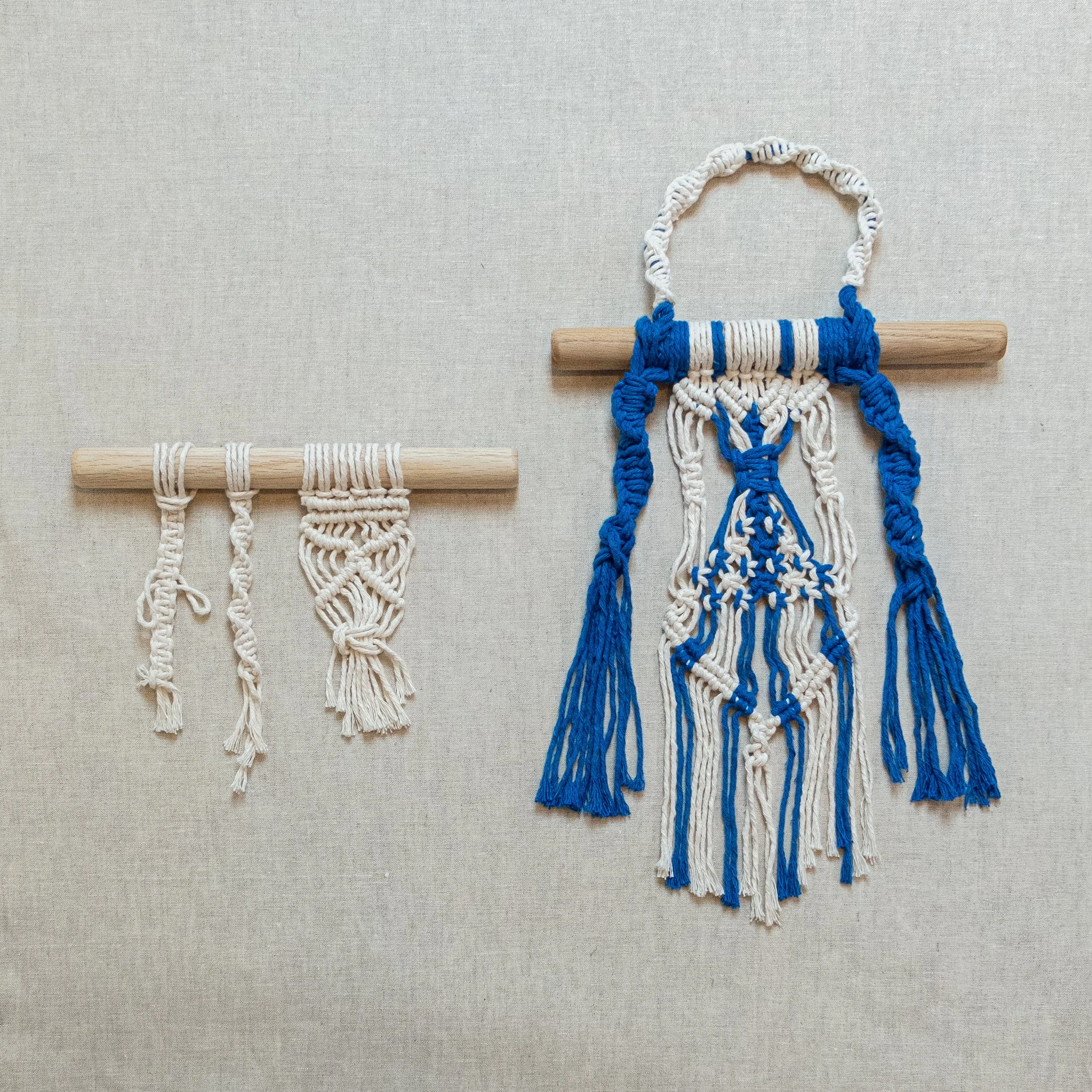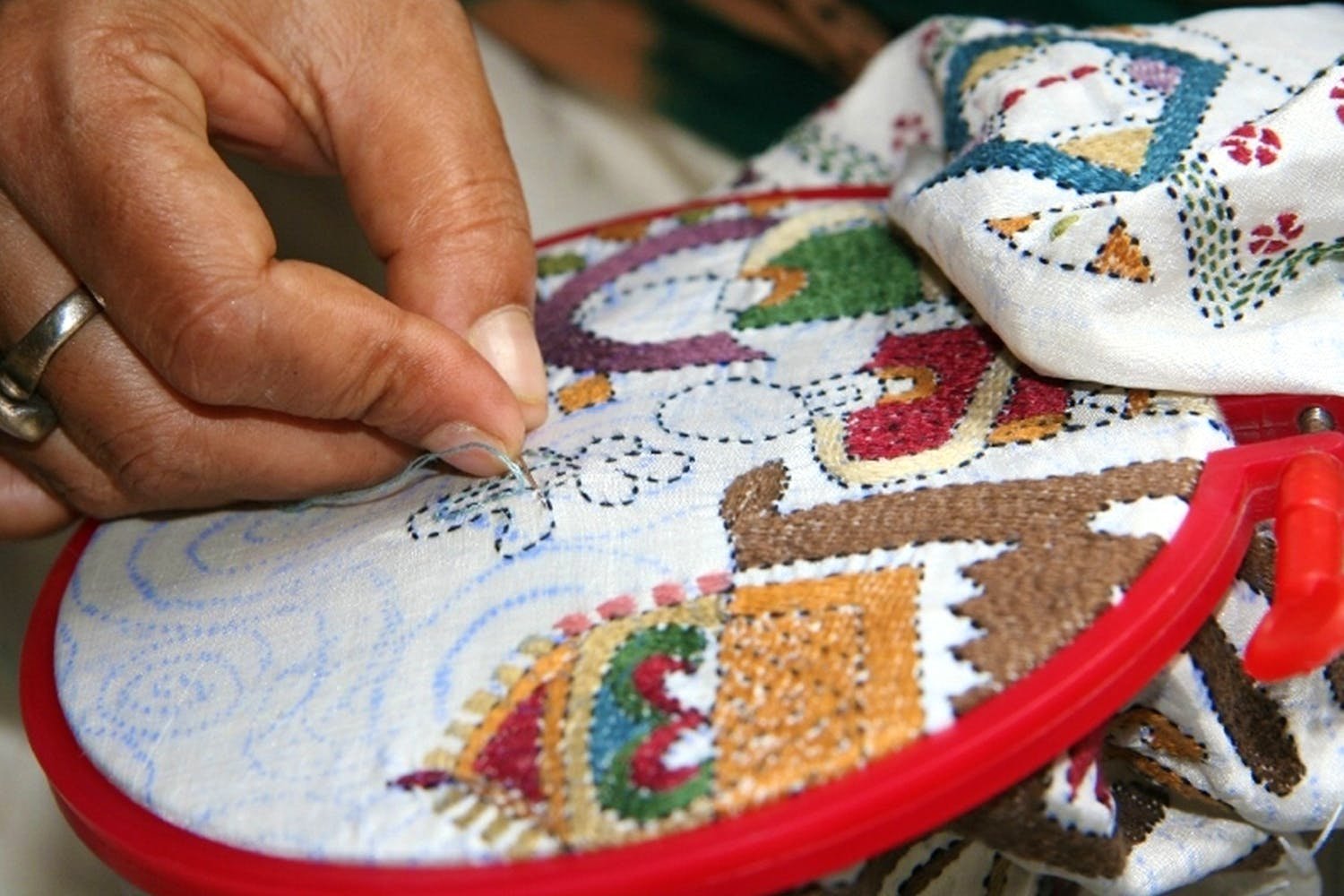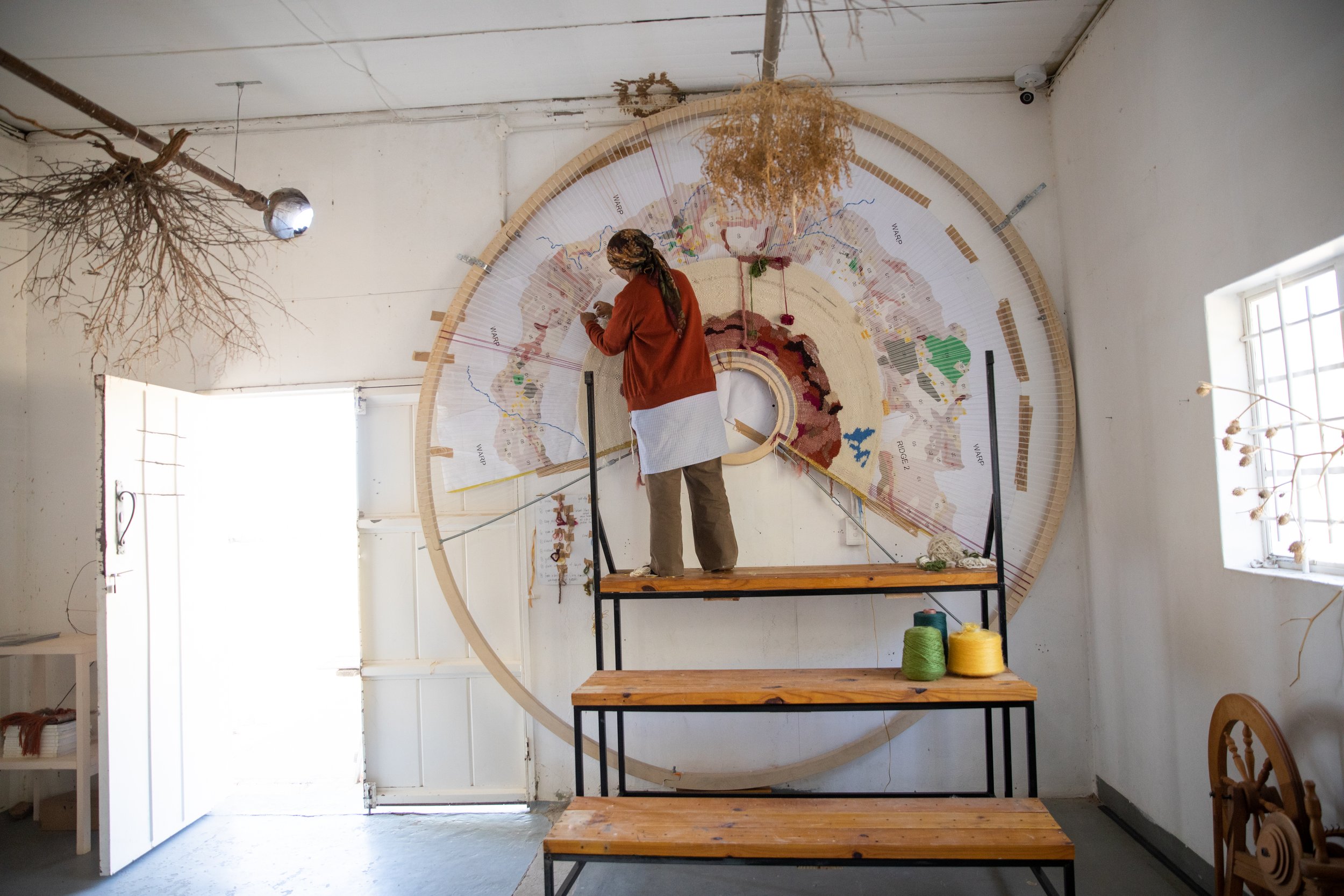
Single Day Events
or
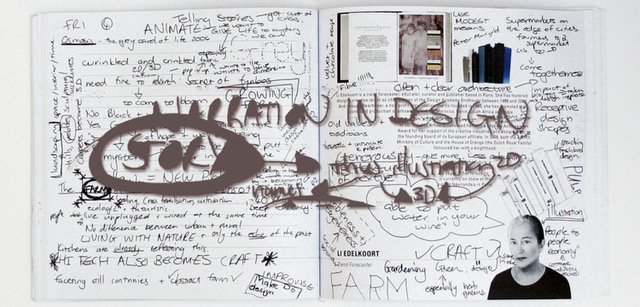
World Hope Forum ANTI_FASHION
ANTI_FASHION
Curated by Li Edelkoort & Philip Fimmano, Co-Founders, WHF
Since its creation in 2014, Li Edelkoort's much-talked about ANTI_FASHION Manifesto was the first to raise awareness about the shifts and upheavals experienced in the global garment system. Ten years on, the world has changed as much as the fashion industry itself; often welcoming a more restrained approach that combats fast consumption, spurring a powerful movement towards sustainability, creativity, diversity and uniqueness. To celebrate the tenth anniversary of ANTI_FASHION, World Hope Forum is pleased to present a special webinar, sharing stories of people that lead by example — a slow fashion revolution that includes independent brands, folk favourites, outsider artists, artisan makers, textile farmers and style philosophers.
This free online September event is hosted in collaboration with New York Textile Month and forms part of our ongoing Talking Textiles educational programme.
The winner of 2024 Dorothy Waxman International Textile Design Prize will also be announced in the conference!
The World Hope Forum was launched on October 24 during Dutch Design Week, during the depth of the pandemic caused by Covid-19, and founded by Lidewij Edelkoort and Philip Fimmano, in collaboration with Dezeen as a media partner. The objective of this platform is to federate, to bring together the major players who have developed new industrial, economic, and more virtuous processes, where the center is people. The World Hope Forum’s main goal is to create a holistic global platform for the exchange and expansion of knowledge, innovation

600+ Wool Skirts: Collection Preview and Conversation
Talk
Join fashion archivist Sarah C. Byrd in conversation with Mae Colburn and her mother, Carol Colburn, about a collection of 600+ secondhand wool skirts assembled by Mae’s grandmother, Audrey Huset (1922-2022), between 1960 and 2000.
This spring, Mae, Carol and other family members worked together to catalog the entire collection, before moving it from Carol’s home in Duluth, Minnesota to Mae’s rag rug weaving studio in Brooklyn, New York. In the process, they created a striking photographic record of the wool skirts, now viewable on the collection website.
For this event, Mae and Carol will introduce the collection and trace its evolution to date, as well as discoveries made during their cataloging process. In conversation with Sarah, they seek to create a broader platform for discussion about home collections, inter-generational stewardship, and possible futures for this collection and others like it.
Sarah C. Byrd is a textile archivist with a special focus on American designers and the artifacts of daily living. She currently teaches courses related to the history, preservation, and material culture of fashion and textiles at FIT, NYU, Parsons, and the Textile Arts Center, and is co-founder of the Fashion Studies Alliance.
Mae Colburn is a scholar and weaver with a particular interest in textile archives, collections, and legacies. She works as archivist for tapestry artist Helena Hernmarck and collects her own weaving activities under the name Common Loom.
Carol Colburn is Professor Emerita in Theatre, Costume Design at the University of Northern Iowa. Her graduate studies included art history, museology, and textiles and clothing. She currently teaches sewing workshops at North House Folk School and John C. Campbell Folk School.
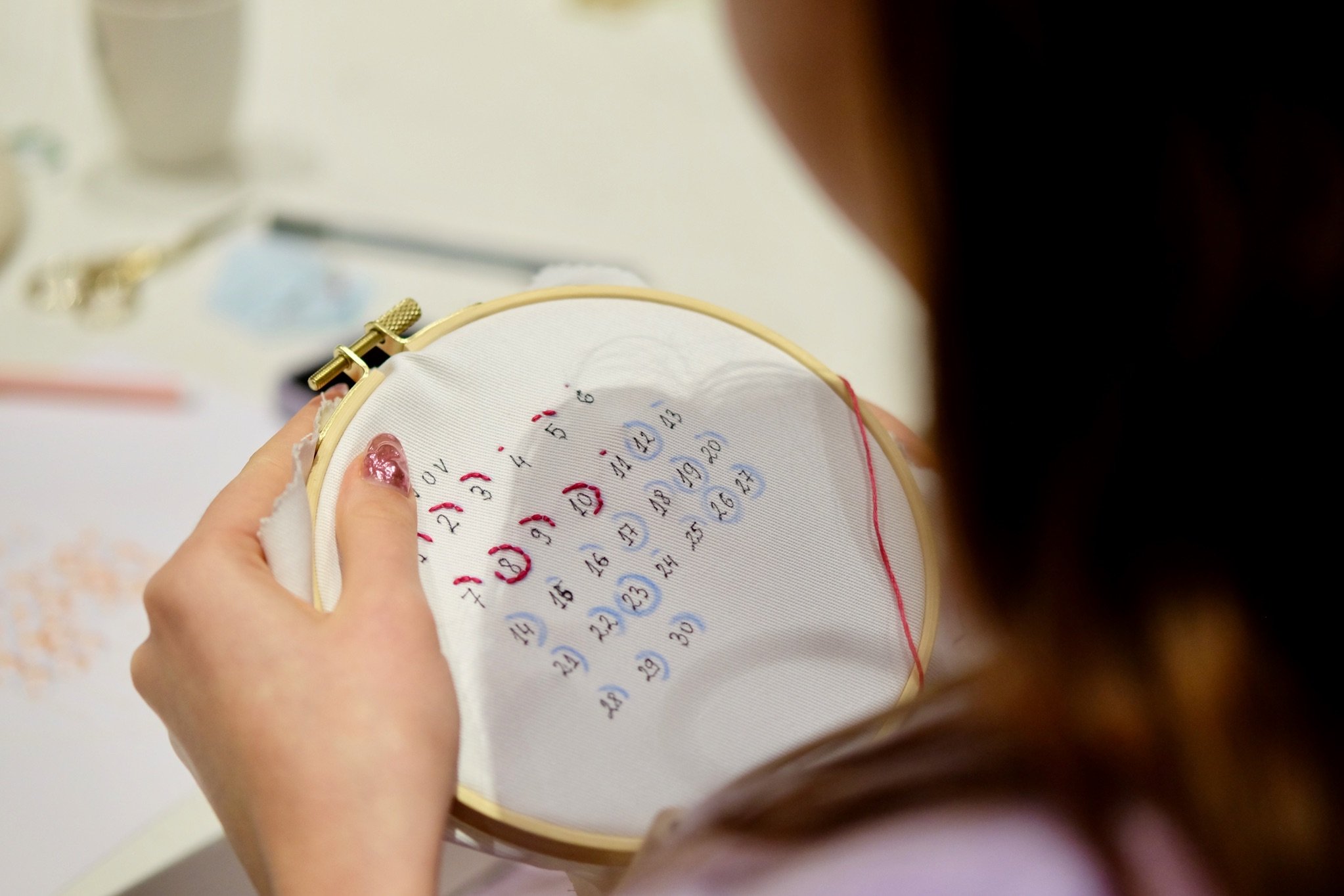
Transactive Memories
Workshop
The Organic Internet is part digital and part human. Participants will delve into what this means in practice during this 1.5 hour embroidery workshop.
Led by artistic researcher Pamela Nelson, with a contribution from Dutch artist Anna Andrejew, participants will materialise this system- both by looking at what is readily available information about ourselves online, and by entrusting another participant with a memory, intended only for them. A piece of information stored in another participant, encoded and visualised will become an embroidered broach over the course of the workshop.
Materials required: a phone/laptop with access to internet, scissors, a needle, threads, felt backing, glue and pins. Attendees must have these with them for the workshop.
Pamela Nelson is an artistic design researcher from Ireland, currently based in Amsterdam. For the last four years she has been looking into how slowness and feminist values can be inserted into the digital design process using embroidery and sewing circles as a tool.

Soft Connection Lab
Talk
Soft Connection Lab is a four-year research project embedded in the University of KASK in Ghent, Belgium. Within the Lab they explore the possibilities to restore the emotional connection with each other and our material surroundings. In a world increasingly dominated by digitalization – which disconnects designing from making - they believe in the value of hands-on experiences, fostering deeper connections with the material, the object, and the people they are interacting with.
During the talk, they are happy to introduce their newly developed methodology that aims to stimulate a conjunctive design attitude. They will share their experiences and interesting footage on the ongoing research. Inspired by forgotten artisanal textile techniques and the social cohesiveness of maypole dancers, the team has researched transversal creative making methods which add an intangible emotional value to the created objects. Besides scaling up and slowing down to enhance insight, they’ve developed a set of four Soft Tools. These four Soft Tools function as their new design vocabulary and contain various obsolete braiding techniques. With these four tools SCL aspires to restore the emotional bonds between makers, consumers, and objects.
Parallel to the talk, they’ll launch our design challenge Healing through braiding. They invite enthusiast makers to use our Soft Tools to heal an object, transforming it and imbuing it with new significance. By exploring repair and restoration, emotional links can be forged between individuals, their material world and society.
Soft Connection Lab is a research project embedded within KASK – School of Arts HoGent in Ghent, Belgium. A collective of five researchers and designers is exploring whether ingenious textile techniques can be transformed into co-creative methodologies and healing artifacts.
In our Western industrialized society, the processes of designing and making are often disconnected. Soft Connection Lab aims to develop methods to reunite these processes through a conjunctive design methodology. Drawing inspiration from ingenious braiding techniques and the social connections exemplified by maypole dancers, the team investigates how this collective energy can enhance the emotional relationship between makers, consumers, and objects. They aspire to determine if this process can serve as a catalyst for sustainability.

Virtual Open Studio: Make Waves
Open Studio
Textile department of Pallas University of Applied Sciences encourages students to experiment with warp and weft manipulation tools for handlooms. The tools are mostly invented and built by professor of Pallas UAS Kadi Pajupuu. The course supervisor is Mari-Triin Kirs who participated in Dorothy Waxman contest some years ago and is now teaching weaving at our university. During their event students and teachers demonstrate with the help of videos the use of those tools on handlooms, analyze the samples and show photos of garments made with the help of warp and weft manipulation tools. The tools (RailReed, Stepping Reed, rigid heddle modules, floating warp devices etc) are made in the spirit of DIY.
www.facebook.com/tekstiilpallas
pallasart.ee/en/admission/departments/textile/
Pallas University of Applied Sciences is the only higher education institution of applied arts in Estonia. Pallas provides studies in three focus areas (design, conservation/restoration and the arts), which are organized into seven curricula: photography, painting and restoration, media and advertisement design, furniture design and restoration, leather design and restoration, sculpture and textile. The aim of the textile department is to develop the field of textile art and design in Estonia. The curriculum is broad and includes courses in fashion. The focus of the curriculum is both on individual skills as well as cross-disciplinary collaboration.
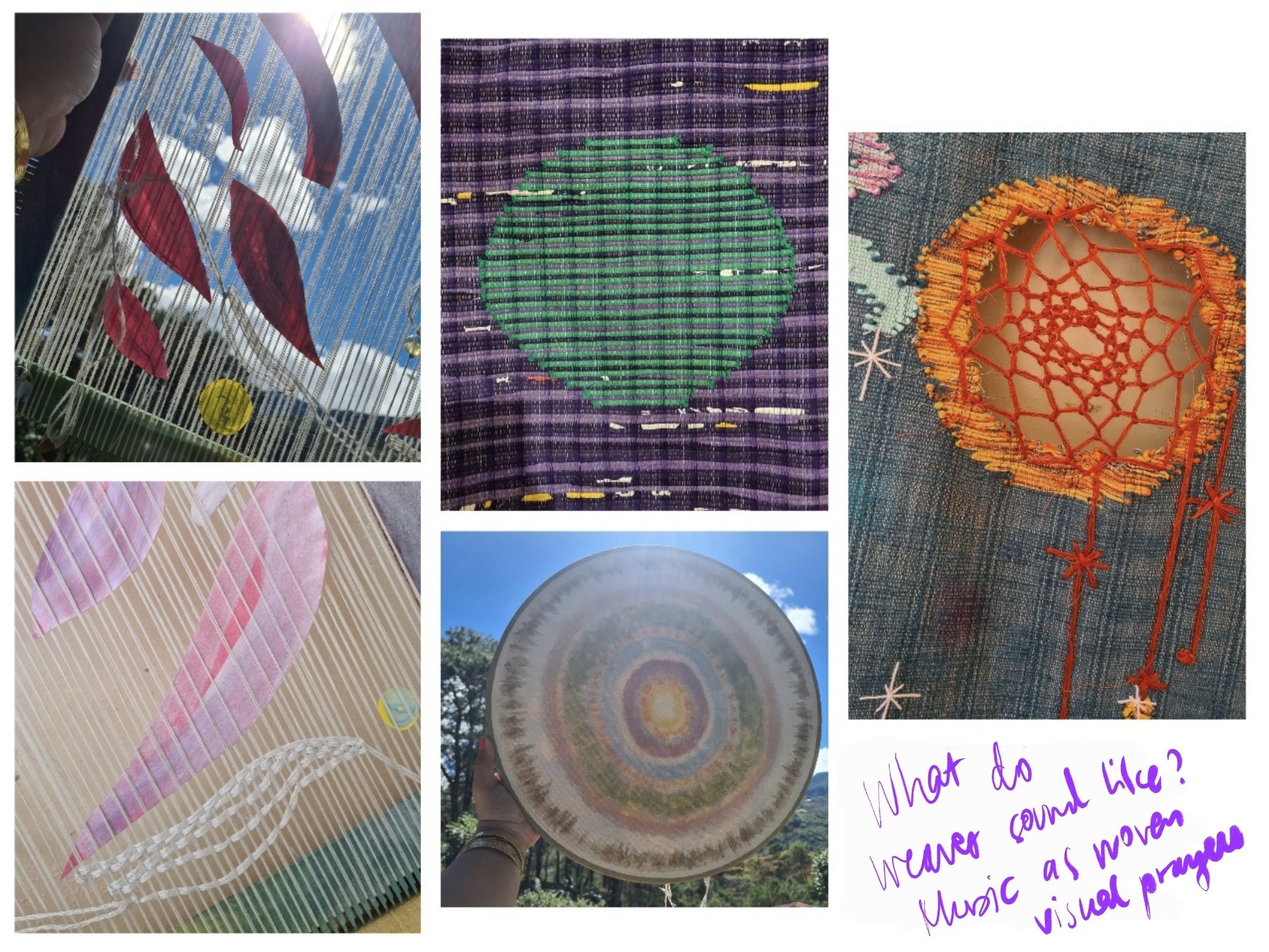
WEAVING LULLABIES
Talk, Exhibition & Workshop
Weaving Lullabies is a two-hour online community weaving, sharing, and listening space to be held during the Autumn Solstice, Sept 21st, at 530p EST/ 230p PST/ 530a PHT
This solstice, ART WEAVE offers community prayers that meditate on what it means to nurture the mother, our creative selves, with the guidance of technologies that keep us abundant and nurtured in a time of destruction and rebirth.
“Weaving Lullabies” is an ancestral remembering, an in-the-moment guide and experimental conversation that uses the mediums of weaving, rhythm and sound lullabies.
Our prayer asks “What is the lullaby for the Mother?” “What is the lullaby for weaving new pathways?
In this prayer ART WEAVE honors the medicine of Weaving and the bearers that share this knowledge. According to the Yakan weavers of Basilan in the Philippines, Yakan being known as "People of the Earth" and "Daughters of the Rainbow", Weaving to them is akin to "Birthing". As birth - genes are passed through ancestry and generations, the knowledge, technicalities and skills of weaving are likewise passed on through generations. The backstrap loom connected directly to the body, the yarns representing the umbilical cord, and each weaver's inhale and exhale expands and births into woven threads.
In this prayer ART WEAVE honors the medicine of Sound. Through the sacredness of listening, they call on sound frequencies that continue birthing legacy stories of celebration that are remembered in our creative spirit, our ancestral bodies and Mother Earth. They use sound to help circulate prayer, to amplify our collective dialogue and to generate new portals of existence.
Their intention of opening up this space is to grow threads of what it means to nurture the Creator within us. They use the technologies of breathing, journaling, collective weaving and song to encourage collective and ancestral dialogue. What does it feel like to cradle our imaginative selves? To weave frequencies that bring new dreaming pathways a little bit closer? In this process, we remember the Creator Mother Earth and offer lullabies to her Creation of newness alongside us. This sharing is open to beginning weavers. Please join them if you feel called!
swirlostar.my.canva.site/nytm-weaving-lullabies-web-landing
@weavinglullabies @twinkleferraren @bellyoftheboo
ART WEAVE was conceived and created in late 2021, during the midst of the pandemic where it was crucial to find ways for Artists and Weavers to survive ~ the ART WEAVE project started with a collaborative project between Baguio’s Visual Artists and Textile Weavers – where Textile Weavers translated works of Visual Artists into Handwoven Textile pieces.
After exhibiting in June-July of 2022, ART WEAVE received several invitations and inquiries to exhibit some more and to expand the offerings.
Seeing the needs and reactions from the exhibits, there is a need for continuous dialogue between the weavers and artists.

Swatch book of Stories
Workshop
In these socially, politically, and economically challenging times, let us come together as a community and weave our small stories of hope and random acts of kindness from our everyday lives into digital fabrics and build a virtual ‘Swatch book of Stories’ that we can share with each other.
For centuries, the roots of weaving, computation, and text have been intertwined with each other through their algorithmic patterns and coded natures. From these intertwined roots grows this idea of ‘Swatch book of Stories’.
Participants come together and translate their stories into digitally woven swatches using an experimental and generative digital loom. Through this process of weaving our stories, we learn about the intricacies within the relationships of computation, weaving, and text, as well as revisit some historic examples where these intersections brought forth hope and transformative change during their times. By the end, these digital swatches come together to build a virtual swatch book fostering a community where everyone can share their stories and swatches with each other.
Nishra Ranpura is an interdisciplinary designer, researcher, and creative technologist. Her work explores the interactions between the physical and the digital through experimental and speculative narratives. She researches, practices, and teaches across the disciplines of new media, digital fabrication, creative technology, and design research. Essentially, she makes things and breaks things. Sometimes, she writes, and oftentimes, she wonders.

Macramé Basics
Workshop
In this workshop, students will learn foundational macramé knots: square knot, spiral knot, horizontal and diagonal clove hitch knot. They will then practice creating structures using all of them.
Macramé has a long history, from the Moors teaching the Spanish and its peak in Italy during the seventeenth and eighteenth centuries. It was first used as a decorative fringe on household items such as curtains, sheets and towels.
In Brazil, macramé is often developed in areas where fishing is the main source of income, due to the similarity between the types of rope and knots used in fishing and macramé.
The technique is widely used in textile art for making tapestry panels. For this class, first students will learn the basics to later start their own tapestry panel.
This class is suitable for all levels!
Tatter is a non-profit cultural arts organization whose mission is to explore the medium of textiles to tell human stories and cultivate understanding.
Tickets cost $65.
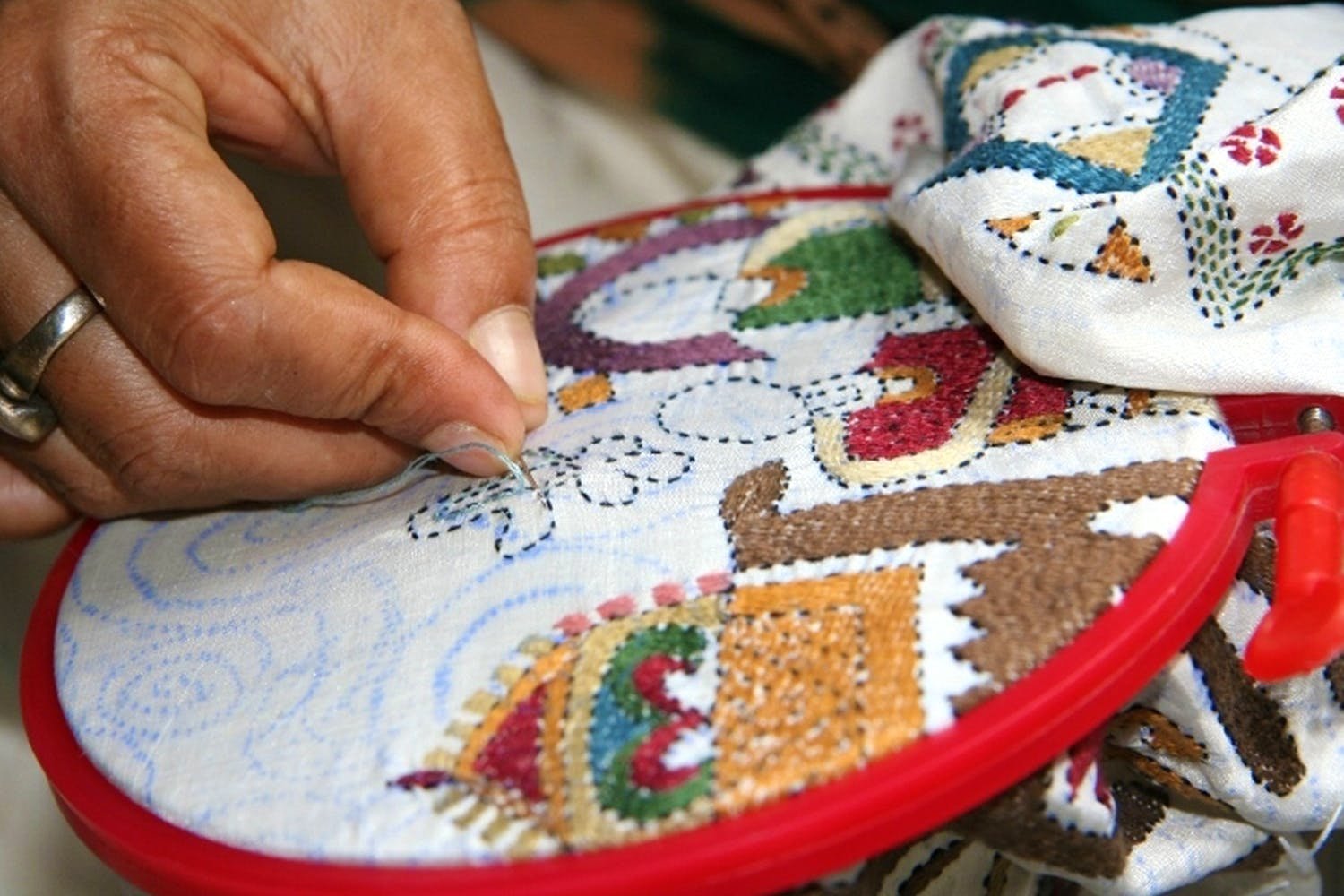
Sewing Our Hopes & Dreams Through Sujini Embroidery
Workshop
An online workshop delving into the exquisite world of Sujani embroidery from Bihar. Led by Bhuvana Moorthy, a seasoned seamstress, and Jayanthi Moorthy, founder of Aksara, this session will explore the intricate art of Sujini tribes' stitching. Participants will discover the rich history behind these fexpressive textiles and create their own embroidered patches to be incorporated into a quilt. Join Aksara for a creative journey celebrating this unique form of Indian embroidery! #SujaniEmbroidery #TextileArt #OnlineWorkshop
For the workshop participants will need: some old clothes made into square patches of 6x6 inches, embroidery thread and needle, embroidery frame, paper and pencil, carbon tracing sheet.
Aksara’s mission is to bring to the forefront traditional and contemporary ideas and thoughts about Indian culture in creative and meaningful ways. Aksara’s carefully curated education programs in the form of events and workshops are designed to create deep cultural learning. Aksara organizes unique workshops and edutainment events in museums, libraries, schools, and other community spaces. These education programs vary from being participatory to performative and exhibitory to experiential. They have won Education Awards and Grants for our programs that have creatively engaged various communities in New York City.

Textile Medley: Bryana Bibbs and Anna-Maie Southern in conversation
Talk
Join Intertwine Arts for an online talk wherein artists we admire describe their textile influences. We will examine two artists’ fiber art, as well as discuss the intersections and divergences of their craft and experiences. Featuring Bryana Bibbs and Anna-Maie Southern, they will explore how their art and teaching practices reflect a journalistic sense of weaving, navigate mental health, as well as highlight the virtues of plain-weave.
Bryana Bibbs is a Chicago-based artist who works at the intersection of textiles, painting, and community-based practices. Bibbs earned her Bachelor of Fine Arts with an emphasis in Fiber and Material Studies at The School of the Art Institute of Chicago. She founded The We Were Never Alone Project - a weaving workshop for victims and survivors of domestic violence, serves on the Surface Design Association’s Education Committee, and was named one of Newcity’s Breakout Artists of 2024.
Anna-Maie is a teaching artist and maker originally from the UK, now based in Manhattan. She studied BA Textile Design from University of Arts London, where she specialized in woven design and construction. Since then, Anna-Maie’s practice has evolved to focus on the Japanese weaving SAORI - a free-form approach to weaving that encourages experimentation and self expression. Anna-Maie loves to teach students of all ages and abilities, and is also hugely passionate about disability advocacy and the therapeutic benefits of art making.
intertwinearts.org @intertwinearts
The mission of Intertwine Arts is to inspire creativity, joy, and self-confidence through free-form weaving for people of all ages with disabilities or chronic illness. Intertwine Arts envisions creating and promoting inclusive communities of weavers by partnering with organizations that provide programs and services to people with intellectual, developmental, or physical disabilities or chronic illness together with their families and caregivers. We aim to promote accessibility in the arts, as well as champion the legitimacy of disabled weavers in the art world.

A Fiber Journey: Textiles Farmed and Made in New York State
Tour, Talk & Exhibition
The wool industry in New York State, in particular the Hudson Valley, is diversified and vibrant, but not without its challenges. Discover the various qualities of New York wool and the diverse products produced through a virtual tour of the Hudson Valley's textile supply chain, from farm to market. We'll begin with tours of farms and continue, at a mill, manufacturers, designers, makers and retailers. Isabella Rossellini, actor and Long Island sheep farmer, will introduce a panel made up of farmers and industry professionals who will summarize the strengths of our fiber industry as well as the challenges, and marketing opportunities, leaving time for Q & A.
The Hudson Valley Textile Project is a 501c3 non-profit organization whose approximately 150 members come from all parts of the textile supply chain, having come together to share their knowledge and resources. We support regionally sourced, sustainably processed, and ethically manufactured farm to fiber products through education, collaboration and market development initiatives.














